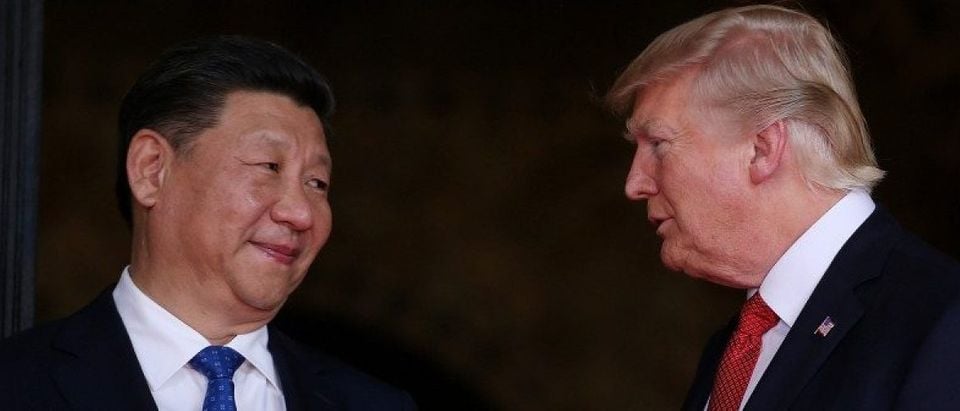Weeks after the Trump-Xi Summit that took place in Mar-a-Lago, North Korea remains an active and ever-growing threat. While discussion between the two leaders on how to address the Kim regime’s illicit nuclear program was at times overshadowed by the U.S. missile strike on Syria, it’s reasonable to say that President Xi realized that the United States has in fact ended its period of “strategic patience.”
The Administration’s “all options on the table” approach stands as the most significant U.S. policy shift toward North Korea in over two decades. But of those options, with a long history of not living up to promises, making concessions to China in return for increased action against the rogue regime should not be considered.
The United States needs to hold China accountable for its facilitation of North Korea’s illicit weapons program instead of rewarding Beijing for complacency. At a recent hearing before the Subcommittee on Asia and the Pacific, which I chair, one witness testified that “the failure to sanction Chinese financial institutions has drastically reduced the efficacy of both American and U.N. sanctions against North Korea.” Another called for the United States to “stop pulling its punches, and go where the evidence takes it” in regards to sanctions pertaining to North Korea, with the evidence leading to China.
Previous administrations’ kid gloves approach to China and unwillingness to follow the evidence has resulted in decades of failed policies. The Clinton, Bush, and Obama administrations all fell victim to chronically relying on Beijing’s empty promises with the distant hope that China would finally use its influence to reign in Pyongyang’s provocative behavior, to no avail.
Consequently we have witnessed North Korea continue to make qualitative improvements to its growing arsenal with the successful launch of a ballistic missile from a submarine, the use of solid rocket fuel, and the detonation of two separate nuclear devices in a single year. But the threat continues to grow; recent satellite imagery shows that North Korea is prepared to test its sixth nuclear device, moving the Kim regime one step closer to obtaining a nuclear ICBM capable of striking the continental United States.
That is why it is important that instead of cutting a deal with China in the hope that maybe this time will be different, President Trump will stand firm and hold China accountable for its lack of action. President Trump needs to make it clear that China’s repeated unwillingness to cooperate with the international community and live up to its pre-existing obligations has fueled the current security dilemma on the Korean Peninsula.
The option for China to cooperate with the international community could be easily achieved. As North Korea’s number one economic partner, receiving over 90 percent of all North Korea’s exports, China could follow through on its February announcement of a suspension of its imports of North Korean coal for the remainder of the year, in order to comply with UN Security Council Resolution 2321’s caps on exports of North Korea coal.
But when Beijing decides that it is time to revert back to its complicit ways, which it has done time and again, the Trump administration needs to stand by its statement that all the options are “on the table,” starting with the tools Congress has already provided in the North Korea Sanctions and Policy Enhancement Act of 2016.
Specifically, President Trump should look to expand the use of secondary sanctions to increase pressure not only on Beijing, but Chinese companies that continue to do business with North Korea. In 2005, the Bush administration undertook similar action with great success when it labeled Banco Delta Asia a money-laundering concern. By sending U.S. government officials to over twenty entities in the region, including the Bank of China, the Administration sent a clear and effective diplomatic message that significantly impacted North Korea’s access to the global financial system.
The current U.S. sanctions regime has failed to apply the same pressure used in 2005. The Obama administration only sanctioned one Chinese company, Dandong Hongxiang; with the Department of Commerce only recently imposing $1.19 billion in fines on the Chinese technology company ZTE for selling electronics to Iran and North Korea.
Following the evidence and using secondary sanctions to increase pressure on Chinese entities with economic ties to Pyongyang, needs to serve as the foundation for reversing twenty years of failed policies. President Trump is right to welcome China’s help in bringing North Korea’s illicit nuclear program to heal, but he’s also correct that if China doesn’t go along, the U.S. can act alone. Through the use of aggressive secondary sanctions, the U.S. has the power to once again effectively squeeze the Kim regime and deprive them of the hard currency they desperately need. This is our best hope for a peaceful solution on the Korean Peninsula.
Congressman Ted Yoho is Chairman of the Subcommittee on Asia and the Pacific in the U.S. House of Representatives.


